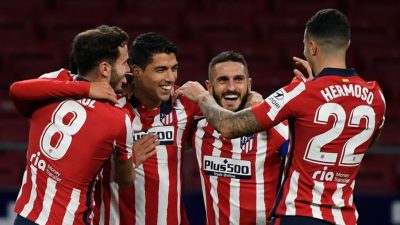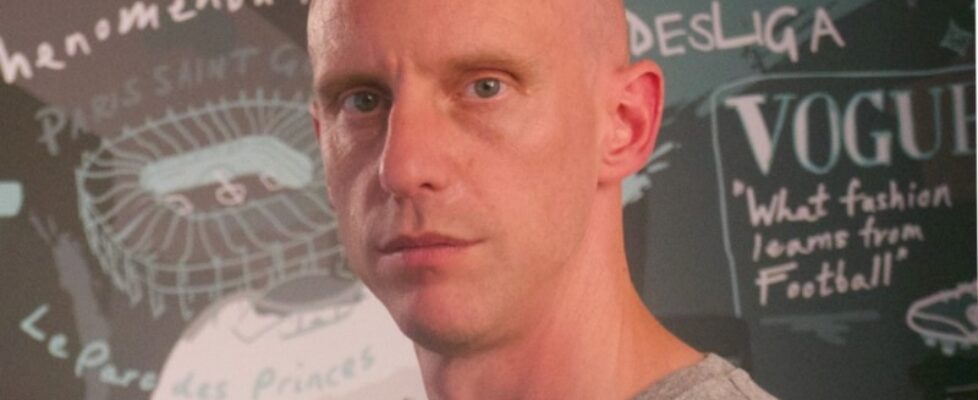Exclusive: SportQuake’s Matt House on the future of FX sports sponsorships
FNG Exclusive Interview… Outside the effects of COVID-19 (and the past week’s retail trader revolt and attack on heavily shorted US stocks), the most talked about phenomenon in the Retail FX and CFDs industry the past year has been sports sponsorships. The past 12 months has seen a flood of agreements signed between online brokers large and small, and a variety of sports clubs including some of the most popular tier-one football squads in Europe. A number of FX and CFD brokers are now front-of-shirt sponsors of some of Europe’s most iconic teams.
And at the center of many of these transactions was SportQuake, a London based sports marketing agency specialising in football sponsorship.
 Why so many deals?
Why so many deals?
How do FX brokers view sports sponsorships from an ROI perspective?
What’s the future of FX broker sports sponsorships?
We’re pleased to present the results of our conversation with SportQuake founder and CEO Matt House on these topics and a whole lot more. Enjoy!
FNG: Hi Matt, and thanks for joining us today. Please let us know a little more about SportQuake and what you do.
Matt: SportQuake was founded in 2006. I’d previously worked for Saatchi & Saatchi, Sky Sports and as Commercial Director at Tottenham Hotspur and saw that the Premier League was changing, with technological developments creating a global platform. I saw a gap in the market to provide brands interested in investing in football sponsorship with all the services they would use when planning and buying traditional media.
Specifically, I recognised the potential for football to help new economy businesses build multi-market brands quickly and at scale, so SportQuake’s services were developed with this in mind. This model enabled us to pioneer football as a space for online betting brands to achieve their marketing goals, starting when Mansion became Spurs’ front-of-shirt sponsor in 2006. We are now doing the same for online trading brands.
Along the way we have opened offices in Hong Kong, Beijing and Madrid and in 2020 we launched Esportquake. Esportquake is a specialist esports division created in response to the sharp growth of esports. Esportquake adopts the same approach as SportQuake, with a dedicated team helping brands plan and buy esports sponsorship better.
FNG: Are you usually hired by an advertising client (such as an FX broker) looking to find the right sponsorship, or by sports clubs looking to locate sponsors? How does the process go?
Matt: We’re an independent agency who work on the buy side (brand side) to connect brands with the global football phenomenon, specifically helping new economy brands plan and buy high profile global partnerships that drive growth.
We use a unique process to do this, taking time to understand each brand and their specific goals before providing a 360º analysis of the football ecosystem and all the relevant available opportunities that map with it in terms of quality and price. From there, we work with the brand to develop a bespoke strategy optimised to help them meet their goals, progressing to negotiate a set of rights that will enable them to deliver this communications strategy to budget. The final step focuses on integrating the partnership throughout their business to ensure our clients hit the ground running and activate with maximum impact from launch.
Some brands still work directly with rights holders, but the market is complex and the deals have become so big and multifaceted. SportQuake provide brands with the expertise that’s required to develop the best sponsorship strategy for them.
FNG: There have been a flood of FX broker sponsorships of European soccer clubs, particularly super clubs, announced lately. Why is that?
Matt: Because it works!
As discussed earlier, SportQuake pioneered football sponsorship as a marketing strategy for online sports betting brands to build a £100bn industry and betting is now the fourth biggest spending advertiser category in football after the sportswear, financial services and automotive sectors.
With so many similarities around the business of building online sports betting brands and that of building online trading brands and with so many proof points around how European football sponsorship has helped online sports betting brands build out, it’s a very logical progression that online trading brands are moving into the football sponsorship space.
FNG: From your vantage point, how do FX brokers – who normally advertise online in ways which can be closely monitored and measured – look at ROI in sports sponsorships?
Matt: Our buyers are interested in football sponsorships because they are proven platforms for brand building. They like the rapid brand awareness the platforms offer to present their brand consistently to attractive demographics in key markets quickly and at scale. They like aligning with globally recognised teams and players that helps with trust and credibility with everyone from regulators to customers and the opportunity to create highly engaging content marketing and experiences together. They like the large engaged digital and social fanbases and the sales opportunity they present.
From a financial perspective, as multi-market businesses, they like the large economies of scale where a single investment, with one central sponsorship strategy, can be leveraged throughout the sales funnel to drive business goals across all key markets.
Probably the most telling proof point is the number of smart people who do football sponsorship long-term, including multiple renewals. eToro are a great example of this, in 2018, we helped them become a Premier League’s sponsor. The strategy went on to become the brand’s most cost-effective UK marketing channel and they’ve gone onto extend their initial Premier League investment to span Premier League teams, Bundesliga teams and other European teams.
FNG: What do you think the next frontier is for FX brokers (and companies targeting similar end users) in sponsorships?
Matt: At a macro level, if we look at the adoption cycle of football strategies by online sports betting companies, it’s now very mature as defined by mass usage of all available football strategies and inventory industry-wide.
Trading, however, is much earlier in the adoption cycle and if we consider the parallels between the two industries, we see trading following sports betting with industry-wide adoption of all available football strategies.
In terms of specifics, in the short term, we see 3 key areas. Firstly, global club football sponsorship. More brands, more partnerships and, within this, bigger partnerships, including club uniform. Then comes local club football and the adoption of football strategies that deliver in key local markets, specifically LATAM, Central America and smaller European markets. Finally, in 2022 we obviously have the World Cup and anticipate bespoke World Cup strategies, including national team sponsorship and player/manager endorsement deals.






Anonymous
February 18, 2021 @ 1:03 pm
5